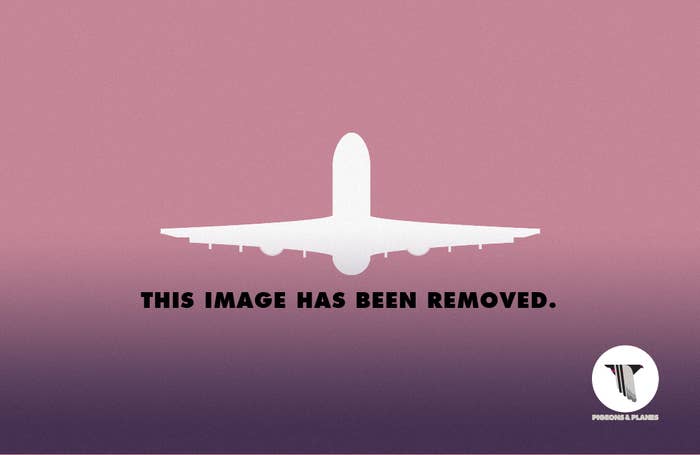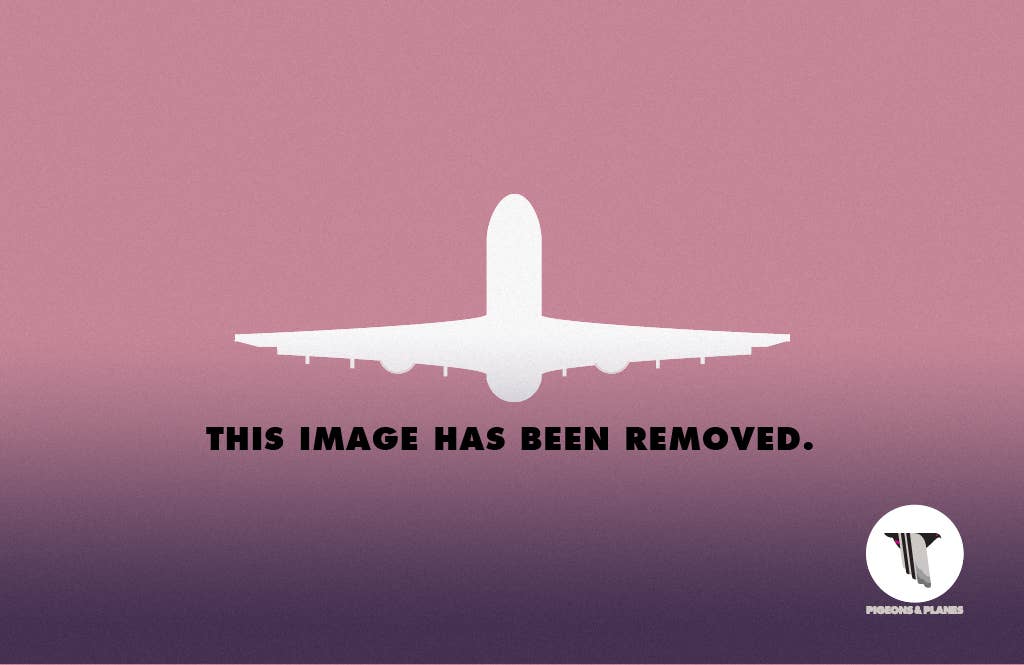1.

Somewhere in Los Angeles, a man in an immaculate suit sits at the head of a conference table. He sighs as he adjusts his tie, glancing up at the plaques that line the walls, then down at his inferiors who crowd around the table. “Bring me the next Lorde,” he commands.
The music business has its eye on New Zealand, and it’s all because of Lorde. Her ascendancy sent ripples through the music industry not just because she hailed from an island of only 4.5 million people, but because she represented a different kind of pop star than we were used to. Lorde is strange but relatable, humble but outspoken. She is something record labels didn’t know everyone wanted until she was suddenly No. 1 in the world. Now they are scrambling to recreate her, and their first stop is New Zealand.
“I attribute a lot of the attention I’ve gotten to Lorde,” admits Thomston, a teenage pop singer from Auckland who shares her management team. Ever since he was dubbed the “male Lorde” by some music blogs, labels have been hovering. “Oh man, look at how much money we can get from that,” he laughs, imagining their thought process. But major labels haven’t just been salivating over pop singer-songwriters. Alternative hip-hop act The Wyld think they have Lorde to thank in part for their recent deal with Columbia Records. It’s clear these major labels are looking for something in New Zealand, but will they find it?
“I don’t think there will be a next Lorde,” says The Wyld’s Joe Pascoe. “She’s fairly unique.” Thomston agrees, but both think there will be something sustainable in the success of Kiwi artists. “If labels are going down with an open mind to good acts, they’ll definitely find them,” Pascoe continues.
Georgia Nott of the electro-pop duo BROODS believes Lorde’s success is a bridge to the rest of the world that Kiwi artists can capitalize on. “It’s time for New Zealand music to put itself out there,” she said in an interview earlier this year. Thomston says he hopes New Zealand can eventually become a place known for its music. It’s not an empty dream.
New Zealand could very well be the next Sweden, a country with a drastically overachieving music culture relative to its population.
Tall Poppy Syndrome
The phrase “Tall Poppy Syndrome” is something you hear a lot in New Zealand. It describes the Kiwi tendency to be turned off by those who fancy themselves special. “Everyone in New Zealand is happy with people being successful,” explains Pascoe. “But you’re supposed to be really humble. You let other people talk about you and go, ‘Thanks man.’ That’s the kind of attitude Kiwis like.” This ethos makes even their celebrities seem relatable, something marketable in the increasingly permeable world between star and fan. “Even though Lorde is a national hero, if she started talking about how great she was, she’d be lost in a second.” But true to her roots, even when Lorde speaks out in media, she keeps her ego in check.
But you’re supposed to be really humble. You let other people talk about you and go, ‘Thanks man.’ That’s the kind of attitude Kiwis like.
Thomston says “Tall Poppy Syndrome” also has the added benefit of giving Kiwis a high barometer for pop acts. “New Zealanders aren’t really fooled by ‘label creations.’ New artists need to prove their authenticity. We really appreciate people who write their own music and people who can play instruments. People who aren’t necessarily all about the bells and whistles.” The authenticity favored by Kiwis is something Thomston thinks is lacking from pop music generally, and might explain part of Lorde’s success.
But “Tall Poppy Syndrome” has its downsides. “Kiwis cane have too humble a mentality,” says Nott. “They don’t want to seem like they are too confident and it can hold them back a bit.” But she thinks Lorde’s rise has paved the way for Kiwis to strut their stuff on the international stage. “We believe in ourselves a lot more knowing that it’s possible.”
The Government
“Tall Poppy Syndrome” manifests itself in New Zealand’s political culture as well. “We have a culture that thinks everyone is pretty equal,” Thomston explains. “New Zealand was the first country to give women the vote.” As in Sweden, this has sense of equality translates into a commitment for access to the arts for all. There has been substantial government backing of competitions designed to drive up creativity. Thomston got his start in a songwriting competition in 2012, and BROODS met Lorde’s go-to collaborator Joel Little after a 2011 high school music competition.
You can apply for a grant from the government and they chuck a bunch of money at you to record your single.
There are also government funds available to support various artistic projects. “You can apply for a grant from the government and they chuck a bunch of money at you to record your single,” Thomston says. For awhile Thomston thought this government support was producing a fair amount of subpar music that some New Zealand radio stations were determined to shove down people’s throats. But lately he’s noticed a change. “The quality of the music has increased so much. And now we’ve reached the point where we’re a bit more embracing of New Zealand music.” He doesn’t know why it happened, but if Sweden is any indication, government support for arts can sometimes form a watershed that leads to an eventual outpouring of creativity. Whatever the reason, Thomston says he feels a more unique culture emerging in Kiwi acts, not just the “New Zealand answers” to various international stars.
Isolated No More
When outsiders talk about New Zealand, there is a tendency to romanticize it as this remote island cut off from the world. “I think a lot of people pull the isolation card,” Thomston says. “But that’s not true. With the internet, isolation has become irrelevant.” Pascoe echoes this sentiment. “20 years ago, New York City felt a whole world away, but now with the internet, it feels closer. It doesn’t feel like an unreachable thing anymore.”
20 years ago, New York City felt a whole world away, but now with the internet, it feels closer. It doesn’t feel like an unreachable thing anymore.
The difference between national and international stardom in New Zealand is staggering. “You’ve got a lot of famous musicians in New Zealand that are kind of national icons that are still not doing that well,” Pascoe explains. “Some of them still have to get normal jobs.” The ability to jump out of the country and into the international scene is one thing Pascoe says he learned from the acts that immediately preceded him. The artists he looked up to were those finding success overseas, outside the country. Thomston shares similar feelings when he talks about looking up to Kimbra. “When she moved to Los Angeles, she put herself somewhere where she’s surrounded by other artists and creative people.”
Pascoe doesn’t think The Wyld’s move to the United States has negatively affected their relationship to their fans back home. “If anything, its strengthened the relationship. Their support is now validated. They were onto this before other people.” And with the state of the music industry in constant flux, new Kiwi artists might not even need to leave the island to be part of the international scene. Thomston is still hasn’t decided whether he wants to move away from home.
The Peter Jackson Effect
Lorde isn’t the first Kiwi to break into the artistic mainstream, and some see parallels between her rise and that of The Lord of the Rings director, Peter Jackson. “Lord of the Rings completely changed New Zealand’s film industry,” Thomston says. “It meant there were all these changes to the structure of the industry and the connections. Lorde has done the same thing. I’m benefiting from those connections, and I think they will have a lasting impact.” He thinks that once the structures are in place, they will be self-sustaining, that Lorde will be the catalyst that makes sure there are tools to support great, authentic New Zealand acts for years to come.
The New Zealand music scene will probably always be small. This means that collaborations between different scenes and genres are common, but it can also be limiting. “In terms of artist relationships, it’s great,” explains Pascoe. “But there aren’t that many people [on the business side] to go to, so if you get turned down by one person, it’s hard to get your foot in the door with another person.” The international connections that Lorde has helped forge for the entire New Zealand music scene make that network larger. Even if some of the temporary hype around New Zealand goes away, those business pathways will potentially remain open. All the artists I spoke to stressed the fact that there have been talented acts in New Zealand for a long time, but that they are just now being discovered. While this could partially be a bit of old-fashioned hometown bias, it’s certainly true that the industry support hasn’t always been there. The attention is new.
When Little was sent his platinum plaque for ‘Royals,’ it misspelled his name ‘Joe Little.’
If you want an example, look no further than Joel Little, the producer and co-writer of Lorde’s debut album. Little has had the Midas touch of late, working with popular Kiwi acts like Broods and Kids of 88. But when Little was sent his platinum plaque for “Royals,” it misspelled his name “Joe Little.” Maybe it means nothing, but when you think about how new many of the relationships are between the New Zealand music scene and the power structure of the international music industry, it seems fitting. That may be set to change.
If this ambitious new crop of Kiwi artists has its way, the RIAA will be dealing with these “Joe Littles” for a long time to come.

